Features of Japanese neutrality. About the Matsuoka-Molotov Pact
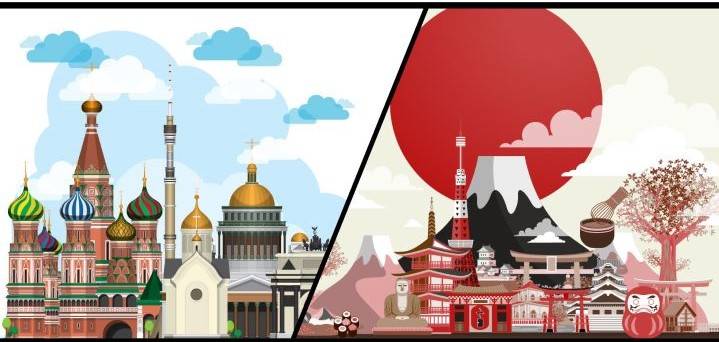
Pacts in fashion
On the eve of World War II, pacts were in vogue. Perhaps the first agreement called the pact was the joint political act of Germany and Japan (Anti-Comintern), signed in November 1936. Then only the civil war broke out in Spain and the Reds raised their heads in Southeast Asia, which was considered the zone of interests of Japan.
Before that, there was still an unsuccessful attempt to form a kind of Eastern Pact on the old continent with the participation of the USSR, Germany, Czechoslovakia, Finland, Poland and the Baltic countries. And Italy joined the Anti-Comintern Pact, and Mussolini did it as if on purpose on November 7, 1937, as a gift to Stalin for the twentieth anniversary of the October Revolution.
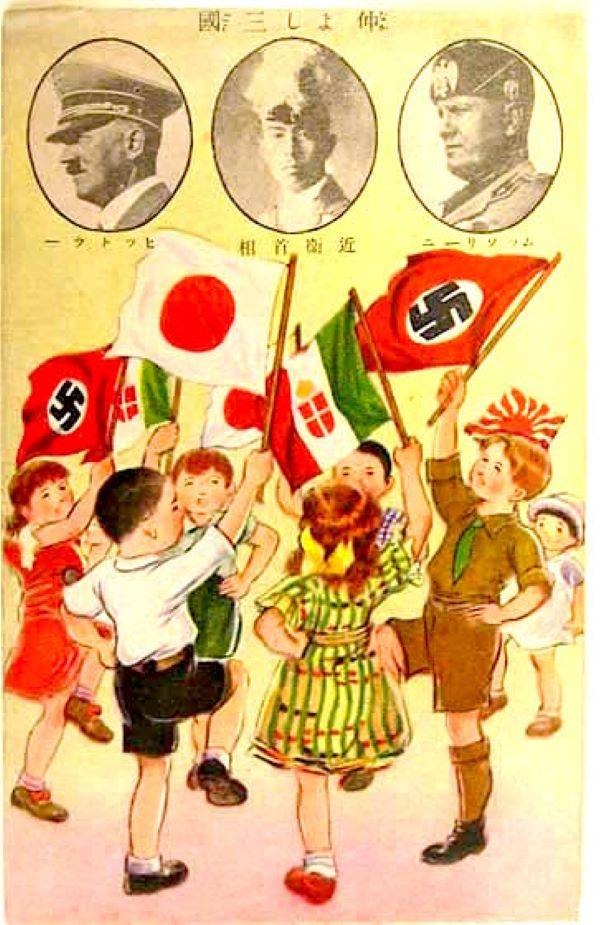
The direction of the tripartite agreement of the Axis countries against the Comintern was even ridiculed by Stalin in a speech at the 1939th Congress of the CPSU (b) in the spring of XNUMX. The leader of the peoples clearly defined that the military bloc of Germany, Italy and Japan is directed against the interests of the United States, Britain and France. The USSR, as one could understand, only followed them, and the "centers" of the Comintern, according to Stalin, were "ridiculous to look for in the deserts of Mongolia, the mountains of Abyssinia and the wilds of Spanish Morocco" - the then hot spots.
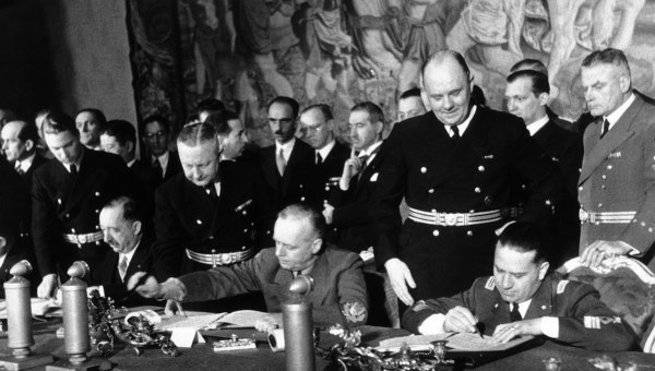
The fact that the Anti-Comintern Pact was replaced in 1940 by the Triple Berlin Pact, already anti-American, did not change anything in essence. There were also pacts between the Russians and the French, the Germans with the Poles, and, of course, the Ribbentrop-Molotov Pact, regarded in Japan as a betrayal of the ideas of the Anti-Comintern Pact.
It took Hitler a lot of work in the fall of 1939 to convince the Mikado subjects that it was too early for the Japanese to leave the notorious Axis Berlin-Rome-Tokyo. But it only seemed that the solitaire relationship in the already established blocks was changing too often. Even the war with Finland, and then the annexation of the three Baltic states to the Soviet Union, did not force Washington and London to make a direct break with Moscow.
Too encouraging was the prospect that the Nazis would be seriously (albeit briefly) stuck in Russia. The pause was badly needed not only for Britain, which was barely able to withstand the threat of a German invasion, but also for the United States, where the military industry was just gaining momentum.
However, the American position depended too much on when it would be possible to convince the isolationists that it was impossible to sit out overseas even in this European war. Moreover, unlike the First World War, where still insignificant contingents of troops fought in the colonies, the second turned out to be by no means only European.
The old continent was almost completely crushed by the Hitlerites, together with Italy that joined them. Today, there is no longer any need to prove that, often demonstrating ostentatious indifference to numerous German provocations, the F.D. Roosevelt administration did everything to make the Japanese expansion in the Far East a real irritant for the general public.
But this is not more important. American business could no longer ignore the competition from the unexpectedly rising Eastern colossus. Yes, the preparation of the United States for war unfolded at full power only after the Hitlerite Wehrmacht attacked the USSR, but the Americans had to take their side in the world conflict much earlier.
In Japan, hardly anyone counted on creating a great Eastern empire without opposition from the United States. However, in order to withstand the struggle with such a power, even if it is fighting on a distant periphery, it was necessary to provide a reliable rear.
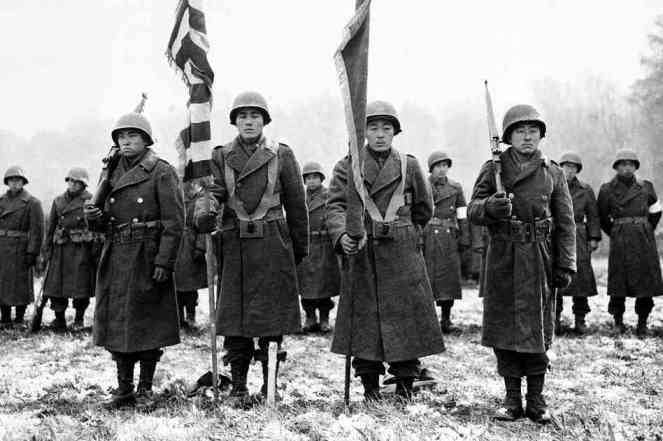
The Chinese factor was really not taken seriously in Tokyo, they hoped to tame the Kuomintangists Chiang Kai-shek, among other things, offering them "to beat the Communists together." However, just at this time, two conflicts with the new Russia occurred - a kind of reconnaissance in force. Indeed, even three or four years before that in Japan, not least at the suggestion of the press, they came to the conclusion that the Soviets were not ready to fight on distant fronts.
One of the clashes, on Lake Khasan, turned out to be local, but inflated to the scale of a small war, while the other, on the Mongolian Khalkhin Gol, on the contrary, was too serious to be carefully veiled. They actually forced Japanese politicians to change their direction at least temporarily.
Yosuke Matsuoki's Diplomatic Blitzkrieg
This was also dictated by business, the role of which in Japanese neutrality is written on the pages of the Military Review (Mystery of Japanese Neutrality). Defense orders came to entrepreneurs on an increasing basis, and for their fulfillment there was an acute shortage of resources, primarily oil.
The Yamato empire ran out of oil by the 1920s, and before the war, most of it, up to 90%, was bought from the United States. But they clearly had to be at war, and an alternative was needed. There was only one option left - in the Soviet Union, on Sakhalin.
Back in the fall of 1940, Japanese Foreign Minister Yosuke Matsuoka offered V. Molotov, at that time the head of the Soviet government, a neutrality treaty in exchange for maintaining the Sakhalin concessions. Preliminary consent was obtained, although the neutrality pact did not allow raising the question of returning South Sakhalin and the Kuriles. Then they did not belong to us.
However, the Kremlin dragged on with specifics due to the need to settle in the Baltic States and Moldova, as well as to gain a foothold on the Karelian Isthmus. At this time, Stalin planned to replace Molotov as chairman of the Council of People's Commissars, and Matsuoka, despite the fact that he could not know about it, actually had to go on a second round.
Matsuoka has not forgotten the humiliation Japan suffered two years earlier when Joachim Ribbentrop, the German foreign minister, signed a non-aggression pact with Molotov. Soviet diplomats and Stalin personally made curtsies in the direction of Germany, and did not even remember about the Japanese. The Germans simply abandoned them, leaving them without allies, when the war in the East could begin at any moment.
Matsuoka, who came to Europe especially for this, did not even stutter in Moscow about the consequences of the recent military conflicts with the Russians, having received in response a proposal to expand the non-aggression pact to the level of a neutrality pact. In fact, then the Soviet leadership had a free hand, and the Japanese minister, according to V. Molotov, his assertiveness cost a lot.
Many years later, the Soviet People's Commissar recalled: “This farewell was worth the fact that Japan did not fight with us. Matsuoka later paid for this visit to us ... "Molotov, of course, had in mind the famous arrival at the Yaroslavl station to the train of the imperial minister of Stalin himself, who, in front of the German ambassador Schulenburg, was demonstratively kind to Matsuoka, saying to him:" You are Asian and I am Asian ... If we are together, all the problems of Asia can be solved. "
The main thing was in Article 2 of the signed pact:
Strange neutrality
The reaction of Japan's allies to the pact with the Soviets was by no means positive: they were losing an ally in the upcoming battle with them. Hitler was simply furious, saying that he was not going to fight the United States instead of the Japanese. Although, in fact, he did just that, trying in vain to play the card of American isolationism.
After Moscow, Matsuoka visited the Axis allies in Berlin and Rome, where he did not hide his great friendliness and respect for the United States. But even from Mussolini, he was forced to listen to demands for Japan to take a firmer anti-American position.
The United States reacted no less original to the Soviet-Japanese agreements. The Matsuoka-Molotov Pact was immediately called a strange neutrality in the American press. The Kremlin was reminded not only of the recent clashes with Japan, but also was not allowed to forget about the anti-Comintern pact, support for the Kuomintang regime, and along with Chiang Kai-shek, the Chinese communists who were slowly but surely gaining points.
At that time, Washington had not yet planned to provide direct assistance to Red Russia, although they warned its leader as best they could about the reality of the German threat. But this will happen very soon, but for now they have rather soberly interpreted the agreements with the Japanese as an attempt by Moscow to avoid being stabbed in the back.
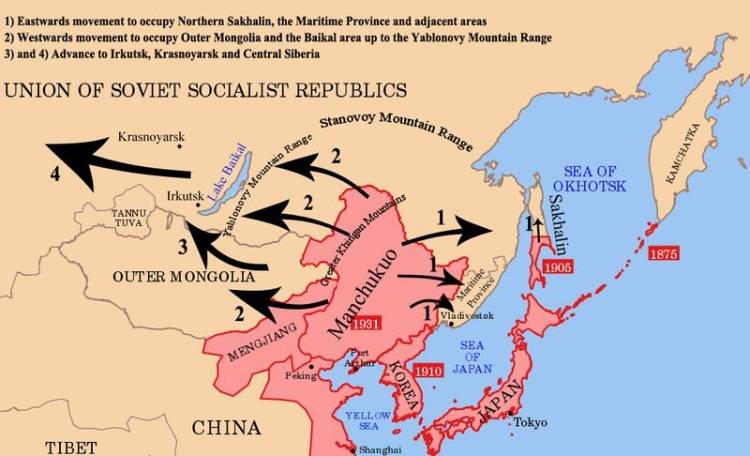
Moreover, in addition to the Japanese, the offensive from the rear of Stalin's Russia could be threatened by the Turks and even the Iranians. The latter, as the almost bloodless occupation of Persia by British and Soviet troops in the summer of 1941 showed, was not worth fearing at all, but the Turks, it seems, have not forgotten Soviet aid and support in the early 20s for twenty years. And with Hitler, the heirs of Mustafa Kemal simply did not bargain, because they wanted too much, right up to the revival of the Ottoman Empire.
Obviously, if a "strange war" happened, then "strange neutrality" had to be taken for granted. But if the strange war ended as soon as Hitler untied his hands for an offensive on the Western Front, then the strange neutrality dragged on, since it was beneficial to both Japan and the USSR.
The strange neutrality did not prevent the Soviet Union from receiving aid from the direct opponents of Japan. At the same time, oil from Sakhalin almost until the last days of the war came to the Land of the Rising Sun. Interestingly, the Japanese themselves offered to break the oil concessions so that "neutrality" would not be so strange.
But the solution to this issue was delayed until 1944 due to the fact that Germany attacked the USSR. But even before the end of the war, the parties agreed on an additional protocol to the "Pact of Neutrality", according to which Japanese oil and coal concessions were transferred to the ownership of the USSR.
The main reason for this change lay on the surface - the Mikado government no longer had the opportunity to drag out the process even further, since the Japanese Navy could no longer ensure the safe transportation of oil produced in Sakhalin to the archipelago. The American navy has already closed all possible routes that seem so short only on the map.
Well, Berlin's repeated demands later expressed to the Japanese simply to unleash a war against the USSR would mean inevitable defeat for the Far Eastern ally. However, there were also those among the Japanese who considered the attack on Pearl Harbor, which marked the beginning of the war with the United States, suicidal. And after Stalingrad, the performance of the Japanese could hardly have given the Germans anything.
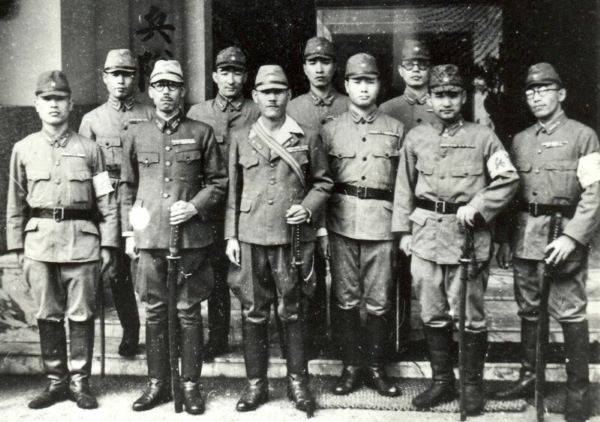
From a military point of view, Moscow had to proceed from the fact that it only needed to hold out for some time against a possible Japanese aggression, and to decide the matter after the arrival of reinforcements from the western part of the country. Is it because at a conference in Tehran at the end of 1943, Stalin made it clear to Roosevelt and Churchill that Russia was not going to evade the fulfillment of its allied obligations.
This was hardly worth considering as a response to the firm decision of the United States and Great Britain to open a Second Front in Europe. Only on November 6, 1944, on the eve of the next anniversary of the Great October Revolution, when France was already practically liberated, did Stalin go to a direct violation of Soviet-Japanese neutrality.
He directly named Japan among the aggressive states, which will inevitably be defeated. In Tokyo, they understood everything correctly, reprinted the speech of the Soviet leader almost without cuts, thereby proceeding with the psychological preparation of the population for the inevitable. There was even a certainty among Soviet diplomats that the Japanese would soon leave Germany as an ally, but the Allies managed to deal with the Nazis six months earlier than with the Yamato Empire.
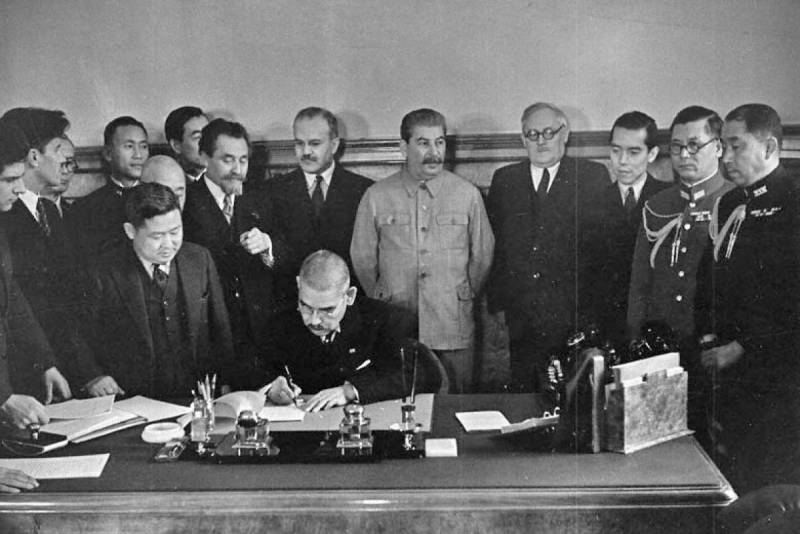
Information